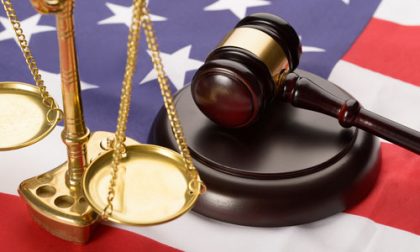Another Delay in Wire Act Reversal Appeal
The chances for a near-term resolution of the battle between the US Department of Justice and the State of New Hampshire over the reach of the US’s 1961 Wire Act remain short, with another extension in the appellate case moving the next step in the matter to near the end of 2019, assuredly pushing an appellate ruling well into 2020.
The US First Circuit Court of Appeals recently granted a motion made by DOJ attorneys for an extension of time to file their initial appellate brief and appendix. The DOJ had been due to file the brief by November 12, but the First Circuit court approved the request to back that up to December 20, 2019. Once filed, it still represents only the first step in the appellate process.
 The State of New Hampshire and its two lottery-agency entities, Neopollard Interactive LLC and Pollard Banknote Limited, will then have a 30-day window to file an initial response. The DOJ, in turn, then gets another 21-day window for its own reply, and that’s without considering any other requests for extensions, supplemental filings, other motions and so on.
The State of New Hampshire and its two lottery-agency entities, Neopollard Interactive LLC and Pollard Banknote Limited, will then have a 30-day window to file an initial response. The DOJ, in turn, then gets another 21-day window for its own reply, and that’s without considering any other requests for extensions, supplemental filings, other motions and so on.
At stake, of course, is whether the “reversal opinion” favored by the Trump Administration and the DOJ remains ruled invalid, thus leaving all interstate (re: online) forms of gambling legal, with the exception of sports betting. Currently, with that 2017 DOJ reversal opinion on the Wire Act not in effect, states across the US are able to sell lottery tickets online, and states that have approved online poker are legally able to pool their players to increase liquidity.
All that goes away should the Wire Act reversal opinion somehow be re-validated, even if the odds are against that scenario happening. The reversal opinion sought to continue the earlier interpretation of the Wire Act, which was construed, or rather, expanded upon, by the DOJ to ban all forms of interstate-based gambling except for horse racing, which was exempted in 1978.
Though the DOJ appeals virtually all such legal disputes as a matter of principle, if not arrogance, the other way to read the situation is to consider this as a delaying game. The reversal opinion itself, published in late 2017, was crafted by lobbyists and attorneys from Sheldon Adelson’s Las Vegas Sands Corp. Adelson, a rabid online-gambling opponent, may be recognizing that he can no longer stop online gambling’s expansion across the US. Still, he can continue to damage his casino competition by delaying the inevitable as long as possible. That means, in the legal sense, to file motions and seek extensions and attempt to bury the appellate court in a paperwork mountain.
It’s all but certain the matter will at least be submitted to the US Supreme Court, anyway, no matter who wins the First Circuit appeal. Though SCOTUS may not even bother with the matter, the process itself would continue the delay. Smart money says this case drags on into 2021 or 2022.


















COMMENTS